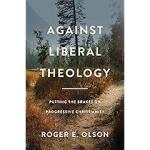The second account of creation in Genesis describes in its own way how humanity was formed from the reddish clay of the earth. In some sense the earth is our common mother. The commandment to honor our father and mother can be extended to include our mother earth in all her materiality. Today this maternal earth is nurturing and sustaining each of us in life; some day the same earth will receive back our lifeless bodies and incorporate them once again into the flux of elements and particles that make up the cosmos, until the final resurrection.
Humankind has a biblical mandate to exercise dominion over all creation as God's administrators (Gen. 1:26). As Pope John Paul II pointed out in On Social Concern, this dominion "is not an absolute power nor can one speak of a freedom to 'use and misuse' or to dispose of things as one pleases." Instead we are called to administer wisely so as to foster life and development, and not to destroy the Creator's work. The Lord's Prayer -- with its petition "Thy kingdom come, thy will be done on earth" -- can be a prayer for healing, life, justice, and harmony on earth, brought about by God's power through ourselves as God's instruments or co-creators. Our generation has a moral responsibility for the future, to leave to the next generation something more that a barren, depleted wasteland.
Cosmos as Revelation
Just as Catholic spirituality now finds a revelation of God in our own male or female bodily reality and in our neighbor, especially the poorest, so will we find a revelation of God in the physical universe around us. "Since the creation of the world, invisible realities -- God's eternal power and divinity -- have become visible, recognized through the things he has made" (Rom. 1:20). All dimensions of reality, whether human or non-human, belong to the kingdom of God and manifest the Creator-king. God's kingdom links all reality together in such solidarity that we can hope, with St. Paul, "that creation itself would be set free from slavery to corruption and share in the glorious freedom of the children of God" (Rom. 8:21).
Each created being in its own way reflects and images its Creator. Each was created through the Word that is present to God from the beginning. "Through him all things came into being, and apart from his nothing came to be" (John 1:3). Because of the Word, all creation speaks of God to those who have ears to hear. Humans are the ears and eyes of the cosmos, gifted with the ability to read the magnificent book of creation.
Teachers of spirituality, without slighting the divine transcendence, can awaken people to the presence of God immanent within the cosmos, in trees and flowers, in plants and animals. In this way people will grow in reverence for the cosmos as a place of divine revelation, concealing at the same time as it reveals the divine.
Conclusion
In the period of theological renewal since Vatican II, the cosmic or ecological dimension of spirituality has not been a priority. Ecology may at first seem foreign to spirituality or theology. It is when we begin to grasp the proportions of our ecological crisis that we sense the underlying spiritual problems. It becomes evident that some of the basic concerns of spirituality -- conversion of heart, respect for life -- are basic to the healing of this injured planet.
At the same time, the love for the earth shown by many environmentalists reminds us that contemplation often springs from an appreciation of beauty and an experience of wonderment. The ecological movement is fighting to preserve a world where a revelation of God's eternal power and divinity can be found. Ecology and spirituality can be allies in a common cause.
Eco-spirituality, as it has been called, is far from being a type of armchair spirituality. For some, eco-spirituality will mean a "mysticism of service." As Albert Fritsch writes, "The mysticism of service is a plunging into the most humble of callings, that of getting one's hands dirty in loving service. This means not a floating in the air, but a working on the earth" (Renew the Face of the Earth, p. 251).
For others it will mean a conversion to a simpler style of living. For still others it may mean a contemplative awareness of the beauty and fragility of our planet, and a sense of solidarity with all living and non-living beings. For all of us, a commitment to eco-spirituality is like the leaven that will slowly raise human consciousness in our post-industrial age. In this way we may be able to transmit a truly human quality of life, both interior and external life, to future generations.
This article was previously published at Spirituality Today and is reprinted with permission.
Charles Cummings, O.C.S.O. is a monk of Holy Trinity Abbey, Huntsville, Utah. He holds a degree in formative spirituality from Duquesne University and is the author of Songs of Freedom, the Psalter as a School of Prayer (1986), Monastic Practices (1986) as well as articles in Review for Religious, Envoy, Studies in Formative Spirituality, and Cistercian Studies. His last article in Spirituality Today was "The Best Place to Live" (Summer, 1986).




